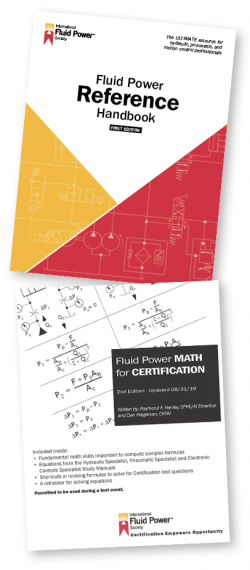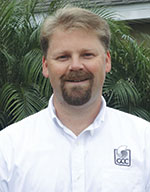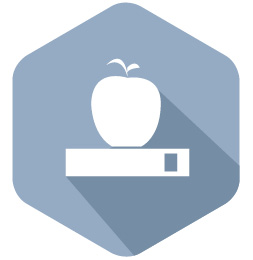A Message from Donna Pollander, ACA, IFPS Executive Director
 One of the things I’ve learned in my 20-plus-year tenure as executive director is that people get certified for many reasons. I’ve heard everything from “I want to be as professional as I can be” to “My company made me do it!” From company managers I’ve heard, “I want to benchmark our employees’ knowledge” and “I want a safer and more efficient workforce.”
One of the things I’ve learned in my 20-plus-year tenure as executive director is that people get certified for many reasons. I’ve heard everything from “I want to be as professional as I can be” to “My company made me do it!” From company managers I’ve heard, “I want to benchmark our employees’ knowledge” and “I want a safer and more efficient workforce.”
All valid reasons.
I want to share an excerpt from a 2013 Fluid Power Journal article written by Scott Gower, CFPS, CFPECS, of Gulf Controls Co. I couldn’t say it better myself!
Scott stated: “People in the fluid power field would likely agree with the following:
- Earning an IFPS certification isn’t easy. This speaks to the value the certification holds. Sissies need not apply.
- Passing the certification test proves a base understanding of the topic. If you’ve earned one and you meet anyone else who also has, you can instantly speak ‘fluid-ese’ and have meaningful conversations.
- Employers who request/require certification can trust they’re meeting people who know what they’re talking about.
- Each certification’s benefit is this: It targets a specific and valuable skill set. It’s not a four-year college degree built to create a well-rounded person. This is a meaningful certification you can add to your resume with a short and dutiful study period.”
 IFPS wants you to succeed and provides a plethora of study aids (more on that later) to help you prepare for a certification test, including the new Fluid Power Reference Handbook. This 360-page reference handbook, offered as soft-cover and hardcover, can be used during a certification test. The color-coded table of contents and index match 17 color-coded sections, making information easy to find. The handbook contains full-color graphics, is ISO, ANSI, and SAE compliant, and contains troubleshooting algorithms and general safety guidelines. It is truly the ultimate, must-have resource for fluid power professionals. We also provide a Math for Certification booklet. Both references are offered at a discount price for test applicants.
IFPS wants you to succeed and provides a plethora of study aids (more on that later) to help you prepare for a certification test, including the new Fluid Power Reference Handbook. This 360-page reference handbook, offered as soft-cover and hardcover, can be used during a certification test. The color-coded table of contents and index match 17 color-coded sections, making information easy to find. The handbook contains full-color graphics, is ISO, ANSI, and SAE compliant, and contains troubleshooting algorithms and general safety guidelines. It is truly the ultimate, must-have resource for fluid power professionals. We also provide a Math for Certification booklet. Both references are offered at a discount price for test applicants.
The IFPS Board of Directors is committed to making fluid power certifications more globally aligned. There are testing sites around the world and many throughout Canada. We are in the final stages of updating our mechanic and technician mobile and industrial certifications to align with CETOP, a European fluid power committee.
I want to review some test preparation options, all designed to help you succeed. Certifications do not exist so you can say, “I took a class and got a certificate”; they are objective, third-party assessments of your fluid power knowledge. So I urge you to take the time to prepare using resources available on our website, www.ifps.org.
If you are unsure of which certification test to take, start with the self-assessment tool. It can help determine which certification test to choose based on your everyday job functions.
Once you’ve determined which certification test to take and submit a test application, you receive an electronic study manual. As you prepare, take time to test yourself. In addition to the pretest included in the study manuals, IFPS offers corresponding online pretests. They give you an indication of whether you’re ready for the test. We also offer web seminars covering more difficult review questions.
Suppose you are more of a visual, auditory learner. In that case, IFPS offers hydraulic specialist and pneumatic specialist interactive study manuals, which turn the traditional black/white print into a full color, animated, interactive online learning platform. Animated hydraulic and pneumatic circuits are also available. These are color-coded, narrated, and animated mp4 and wmv files of circuit operations using ANSI-recognized color designations.
We’ve also seen certification success with in-house study groups that meet during lunch breaks or after work and have fun with our free online “Jeopardy!”-style games. Also, if you have a group of ten or more individuals interested in training and testing at your location, IFPS offers customized training, which can range in length from two days to several weeks and can be customized to your machinery and personnel. Fundamental hydraulic and pneumatic training programs are generally one week in duration but can range from three days to two weeks.
If you are unsuccessful in passing a certification test, don’t give up! Our core-competency reports provide a breakdown of test results to help you pinpoint your weak spots. Successful candidates also receive the report to let them know their strengths and weaknesses.
To boil it all down, it doesn’t matter if you have been in the industry for thirty days or thirty years. To advance your career and become that well-rounded fluid power expert, you must have some skin in the game. IFPS celebrates its 61st anniversary this year – we’ve got skin in the game! Make a commitment to get certified and join nearly 10,000 active certification holders who speak “fluid-ese” with confidence.
For more information, visit www.ifps.org.







